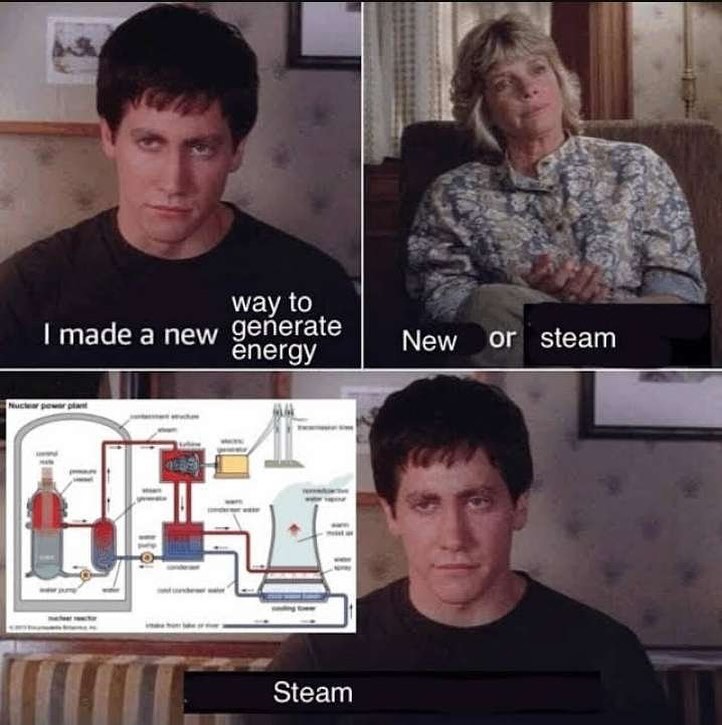Donnieeeeeee
Science Memes
Welcome to c/science_memes @ Mander.xyz!
A place for majestic STEMLORD peacocking, as well as memes about the realities of working in a lab.

Rules
- Don't throw mud. Behave like an intellectual and remember the human.
- Keep it rooted (on topic).
- No spam.
- Infographics welcome, get schooled.
This is a science community. We use the Dawkins definition of meme.
Research Committee
Other Mander Communities
Science and Research
Biology and Life Sciences
- [email protected]
- [email protected]
- [email protected]
- [email protected]
- [email protected]
- [email protected]
- [email protected]
- [email protected]
- [email protected]
- [email protected]
- [email protected]
- [email protected]
- [email protected]
- [email protected]
- [email protected]
- [email protected]
- [email protected]
- [email protected]
- [email protected]
- [email protected]
- [email protected]
- [email protected]
- [email protected]
- [email protected]
- !reptiles and [email protected]
Physical Sciences
- [email protected]
- [email protected]
- [email protected]
- [email protected]
- [email protected]
- [email protected]
- [email protected]
- [email protected]
- [email protected]
Humanities and Social Sciences
Practical and Applied Sciences
- !exercise-and [email protected]
- [email protected]
- !self [email protected]
- [email protected]
- [email protected]
- [email protected]
Memes
Miscellaneous
generate energy.
not generate electricity.
generate electricity.
not generate electricity.
generate electricity the other way around.
not generate electricity.
generate electricity.
not generate electricity.
generate electricity the other way around.
not generate electricity...
Edit: I dumbly misread your post (energy/electricity) & thought of this, which I will leave here because it made me smile & that's a good thing.
Some types of fusion can bypass steam generation and use what's creatively called Direct Energy Conversion. If the fusion products are charged particles they can be passed through a magnetic field to separate them based on charge and collected onto plates. When you look at the electric potential between the plates you've effectively created a voltage, no steam necessary. It's also theoretically possible to do the same with some types of fission products too.
I thought they take advantage of the velocity of the charged ions to magnetically transfer power to electromagnetic coils around the reactor.
There's a whole bunch of mechanisms, largely depending on the fusion architecture and the atoms being fused. For tokamak reactors the circular nature lends itself well to what you describe, though usually it's energy being imparted into the ions to keep them contained and away from the walls. In the 'standard' deuterium-tritium fusion model (the easiest to perform) fusion produces a helium nucleus and a neutron, where the neutron gets most of the energy. Since a neutron can't be contained by magnets it impacts the chamber walls. This heat is wicked away by, you guessed it, cooling water which turns into steam. In order to use a direct energy conversion strategy you need a fusion reaction that produces no neutrons, but we're not there yet.
"I found a new source of naturally occurring waste heat"
